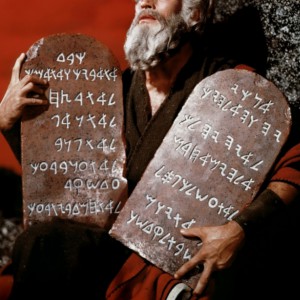Romans 9:13 is tough: As it is written, “Jacob I loved, but Esau I hated.” (To see the context for this statement, click here.)
Several questions spring from this verse. We’ll tackle one in this post and at least one more in a subsequent post.
Did God love and hate two individuals or two nations?
Clues that God loved and hated Jacob and Esau as individuals:
1. The immediate context of Romans indicates that Paul is referring to Jacob and Esau as individuals. In the preceding verses he’s talking about their individual conception, birth and works. And before that, he talked about Isaac as an individual.
2. Paul’s train of thought continues to consider another example of God’s electing work in the life of another individual, Pharoah. (See 9:14-18)
3. Paul’s big idea is that being a part of a specific nation doesn’t determine God’s relationship with you. God chooses individuals within nations. For him to zoom out and refer to God’s love or hate for entire people groups would negate his whole argument.
Clues that God loved and hated the nations that came from Jacob and Esau.
1. Malachi 1, a passage from which Paul quotes, clearly refers to nations, not individuals. Malachi 1:2-5:
[To Israel, God says:] “I have loved you,” says the Lord. But you say, “How have you loved us?” “Is not Esau Jacob’s brother?” declares the Lord. “Yet I have loved Jacob but Esau I have hated. I have laid waste his hill country and left his heritage to jackals of the desert.” If Edom says, “We are shattered but we will rebuild the ruins,” the Lord of hosts says, “They may build, but I will tear down, and they will be called ‘the wicked country,’ and ‘the people with whom the Lord is angry forever.’” Your own eyes shall see this, and you shall say, “Great is the Lord beyond the border of Israel!”
2. Genesis 25:23, the other passage from which Paul quotes, also refers to nations.
“Two nations are in your womb, and two peoples from within you shall be divided; the one shall be stronger than the other, the older shall serve the younger.”
3. There is no evidence that Esau ever personally served Jacob. However the Edomites later became subservient to the Israelites.
4. God never says anywhere else in the Bible that he loved Jacob but hated Esau as individuals.
My Take
I believe Paul is referring to individuals, advancing his argument that individual salvation is determined not by birth, lineage, ethnicity or works but by God alone. He uses these Old Testament references to support his claim that this is how God goes about creating his chosen people.
But there are smarter people than me on both sides of this question. For instance, John MacArthur teaches the other view, that this verse refers to nations. What do you think?
PS: In the next post, we’ll ask what Paul means by hate. Check back! And feel free to comment.





https://waterfallmagazine.com
Hello fantastic website! Does running a blog such as this take a massive amount work?
I’ve very little understanding of programming but I had been hoping to start my
own blog soon. Anyway, if you have any recommendations or techniques for new
blog owners please share. I understand this is off
subject however I just needed to ask. Cheers!